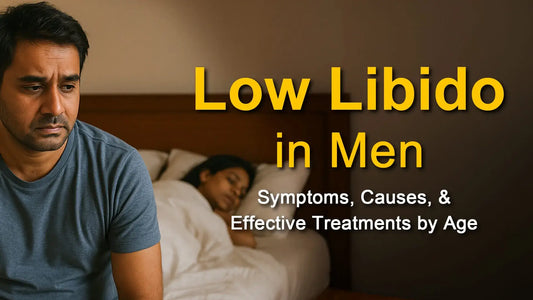Summary
Ayurveda and Allopathy are two aspects of treatment, giving rise to the debate between natural and modern medicine. Ayurveda uses natural remedies for long-term, holistic healing, focusing on the root causes of diseases, while allopathy offers fast-acting, symptom-based treatments often involving chemicals. Both systems have strengths, and the best results often arise from complementary use, depending on individual needs.
The debate between Ayurveda and allopathy has been going on for generations. The concept of Ayurveda vs allopathy is complicated and hard to understand from the core.
Albeit allopathic treatment holds an influence in the medical world these days, whereas Ayurveda has constantly been gaining popularity due to some recent events like the coronavirus outbreak.
To put it simply, Ayurveda is ferociously underrated, and many people fail to understand the importance of herbal remedies.
Furthermore, the availability of allopathic medicines is everywhere; it is super easy to find a cure in allopathy these days.
In this article, we will inspect which medical practice is the best—Ayurveda vs allopathy—and which one you should choose to get rid of any sort of disorder or disease.
Difference Between Ayurveda and Allopathy

Due to the presence of scores of differences, Ayurvedic vs Allopathy is one of the most debatable topics. One is created by gods and holy sages, and the other is created by humans while taking technology into consideration; both medical practices are quite popular among today’s generation.
Let’s see what the main differences are in those medical practices.
Focus on Treatment
One key that makes Ayurveda different and better than other medical practices is that this medicine focuses on working on the root cause of the ailment.
On the other hand, allopathy, the modern medical practice, mainly works on the symptoms of disease, thus not curing it completely.
Pure
Ayurvedic medicines are pure, and other than natural extracts and herbs, this medical practice uses no added harmful substances.
But, without chemical formulations, allopathic medicines do not work well. Chemicals are the foundation of allopathy.
So, tell me, why would anyone possibly trust a treatment that is based on harmful chemicals rather than a treatment that is based on nature?
Cost Effective
High cost is the bitter truth of allopathic medicines; they are super expensive and cost you a fortune.
On the other hand, the prices of Ayurvedic medicines are cost-effective and reasonable, which is quite helpful for those who cannot afford expensive medicines.
After reviewing these above-mentioned points, we are crystal clear that in the battle of Ayurveda vs Allopathy, the triumph is in the name of Ayurveda.
Side Effects
In Ayurveda, the healing process depends on natural substances; therefore, the chances of side effects are negative in Ayurveda.
Even Ayurvedic physicians are trained to use herbs in such a way that they do not show any kind of side effects.
Core Differences: Ayurveda vs Allopathy
| Condition | Ayurveda Approach | Allopathy Approach |
|---|---|---|
| Diabetes | Herbs like Gudmar, Vijaysar, lifestyle & diet changes, detox | Insulin therapy, metformin, strict sugar control |
| Joint Pain | Panchkarma, herbal oils (like Mahabhringraj), ashwagandha | Painkillers, steroids, physical therapy |
| Insomnia | Herbs like Brahmi, Ashwagandha, Vedic diet, meditation | Sleeping pills, sedatives, cognitive behavioral therapy |
| Liver Problems | Detox herbs like Bhumi Amla, Kalmegh, Kutki, sugar control | Liver tonics, enzymes, drugs, sometimes transplant |
| Stress/Anxiety | Adaptogens like Ashwagandha, meditation, pranayama | Anti-anxiety pills, antidepressants, therapy |
| Piles | Triphala, Kutaj, local oil application, digestive correction | Surgery, suppositories, stool softeners |
| Skin Diseases | Neem, Turmeric, blood purification therapies, Rasayana herbs | Steroid creams, antibiotics, antihistamines |
| Obesity | Herbal fat burners (like Guggul), detox, diet correction, yoga | Weight loss pills, bariatric surgery, calorie-restricted diets |
| Asthma | Sitopaladi, Yashtimadhu, breathing exercises | Inhalers, bronchodilators, steroids |
| Kidney Stones | Pashanbheda, Varuna, Gokshura, increased hydration, diet | Surgery, lithotripsy, painkillers |
How Ayurveda & Allopathy Treat Common Conditions
| Factor | Ayurveda | Allopathy |
|---|---|---|
| Philosophy | Balances body, mind, and spirit (holistic) | Targets and suppresses symptoms (symptom-based) |
| Origin | 5,000+ years old, rooted in Indian Vedic tradition | Modern Western medicine, ~200 years old |
| Treatment Method | Natural herbs, diet, lifestyle changes, detox therapies | Drugs, surgeries, radiation, and synthetic chemicals |
| Diagnosis | Based on Doshas (Vata, Pitta, Kapha) and Prakriti | Lab tests, scans, clinical observation |
| Speed of Results | Gradual, sustainable healing | Fast relief, temporary in many cases |
| Side Effects | Minimal if guided by qualified practitioner | Often includes mild to severe side effects |
| Personalization | Highly personalized to body type and imbalance | Mostly generalized based on condition |
| Preventive Focus | Strong focus on disease prevention and immunity | Focused more on treatment than prevention |
| Lifestyle Integration | Emphasizes yoga, meditation, diet, and sleep | Generally limited to medical intervention |
| Cost | Usually cost-effective over the long run | Often expensive, especially for chronic care |
| Use of Chemicals | No synthetic chemicals | Heavy use of pharmaceuticals and synthetic compounds |
| Sustainability | Eco-friendly, uses plant-based resources | Can involve environmentally harmful processes |
Ayurveda and Allopathy: Which one might better for you?
Even though there are other medical practices present in today’s world, the comparison of Ayurveda vs Allopathy is fabled. It is because Ayurveda has been continuously securing its special place in people’s hearts.
Today, most people want to accept natural healing instead of lingering on chemically formulated medicines.
Ayurvedic treatment has a strong belief in healing slowly and steadfastly without causing side effects. Ayurveda directly diffuses the root cause of any certain disorder or disease, making disease completely vanish from one’s body.
In contrast, Allopathy's effects are quick, and many people fall for Allopathy's quick effects trait and forget to stay connected to their roots, which is Ayurveda.
Understanding Ayurveda
Ayurveda is a primitive medical practice that is rich in uncountable amounts of remedies based on natural substances. This medical approach was created more than 5000 years ago, and it is still the most valuable medical practice.
In Ayurveda, a variety of herbs, plants, and natural extracts are concocted to make one medicine that is highly efficient in treating numerous disorders.
It has been said that Ayurveda was created by the god himself. Scores of Hindu mythological scriptures suggest that Lord Dhanwantari, the god of Hindu medicine, was the actual creator of Ayurveda.
The utilization of natural extracts and herbs ensures Ayurveda’s authenticity and makes this treatment more effective in the long term.
Treatment in Ayurveda is non-invasive, and it does not use any kind of chemical substance. Rather, it uses a holistic approach to treat and manage health problems.
Understanding allopathy
Allopathy is a modern medical practice that uses scientific methods to cure any disorder or disease. Allopathy is the Western culture’s creation, and along with some scientifically proven medicines, allopathy also takes the assistance of chemicals.
Calling allopathy natural would be wrong, as this medical approach uses chemicals in the treatment. The theories that support the idea that allopathy has long-lasting effects are very few, and no professional doctor is ready to admit that allopathy can permanently cure one’s disease.
According to the reports, Samuel Hahnemann was the man who introduced the name allopathy to the world.
Whether using invasive methods or chemicals, allopathy uses every possible method to heal the patient completely.
Is Ayurveda Better Than Allopathy?
If we had to describe a winner in Ayurveda vs Allopathy, we would say that yes, Ayurveda is way more effective and better than Allopathy. To prove this statement, there are some points we should look at to understand how Ayurveda triumphed over allopathy.
Conclusion
In the longstanding debate of Ayurveda vs Allopathy, it's clear that both systems have their own strengths and limitations. Allopathy offers fast-acting relief and life-saving interventions, especially in emergency situations.
On the other hand, Ayurveda offers a holistic, natural, and personalized approach to health. It emphasizes prevention, long-term healing, and balance of the body, mind, and spirit.
The best healthcare outcomes often emerge when both systems are used complementarily, under professional guidance.
Ultimately, choosing between Ayurveda and Allopathy depends on the individual’s condition, preferences, and overall health goals. By staying informed and open-minded, one can harness the best of both worlds to lead a healthier, balanced life.
FAQ
Q1. Is Ayurveda Better Than Homeopathy?
Homeopathy vs Allopathy is another controversial topic, but not only Allopathy but Ayurveda is also better than homeopathic treatment.
Q2. Is Allopathy Derived From Ayurveda?
Ayurveda was the first medical practice that ever existed in the world, but the allopathic name is derived from the Greek word állos—other or different—and pathos—disease or suffering, which means “other than the disease.”
Q3. Can Ayurveda Cure Permanently?
Yes, it has been stated that the treatment in Ayurveda works towards curing disease permanently and prevents its future occurrence.
Q4. Which is better Ayurveda or Modern Medicine?
Ayurveda works on improving overall health, including physical, mental, and emotional health, while modern medicines are made to deal with disease’s symptoms (which also describes why their effects are quick).
Q5. Ayurvedic or allopathy—which one is better for diabetes?
Both Ayurveda and allopathy have their own merits in treating diabetes. Diabetes is a long-term, non-curable disease, and managing it often requires continuous treatment.
Allopathic medicines can be effective, but they can have some side effects such as dizziness, nausea, vomiting, abdominal discomfort, bloating, headaches, weight gain, electrolyte imbalances, anemia, hypoglycemia, lactic acidosis, joint discomfort, and indigestion.
On the other hand, most Ayurvedic medicines for diabetes are considered safe and have been shown to manage diabetes effectively. However, individuals should consult their doctor before taking any medicine for diabetes management.
References
- GSC Biological and Pharmaceutical Sciences. Comparative study [Internet]. GSC Online Press; [cited 2025 Apr 24]. Available from: https://gsconlinepress.com/.../GSCBPS-2024-0023.pdf
- Wikipedia contributors. Samuel Hahnemann [Internet]. Wikipedia; [cited 2025 Apr 24]. Available from: https://en.wikipedia.org/.../Samuel_Hahnemann
- Patwardhan B, Warude D, Pushpangadan P, Bhatt N. Ayurveda and traditional medicine [Internet]. Evid Based Complement Alternat Med. 2005;2(4):465–73. Available from: https://pmc.ncbi.nlm.nih.gov/.../PMC5041382
- Wikipedia contributors. Dhanvantari [Internet]. Wikipedia; [cited 2025 Apr 24]. Available from: https://en.wikipedia.org/.../Dhanvantari
- Sharma RK. Comparative Assessment of Ayurvedic and Allopathic Methods [Internet]. ResearchGate; [cited 2025 Apr 24]. Available from: https://www.researchgate.net/.../Ayurvedic_And_Allopathic_Methods
- Saper RB, et al. Lead, mercury, and arsenic in Ayurvedic medicines [Internet]. JAMA. 2008;300(8):915–23. Available from: https://pmc.ncbi.nlm.nih.gov/.../PMC2777756





